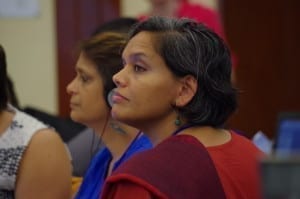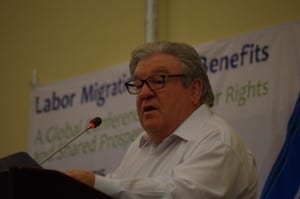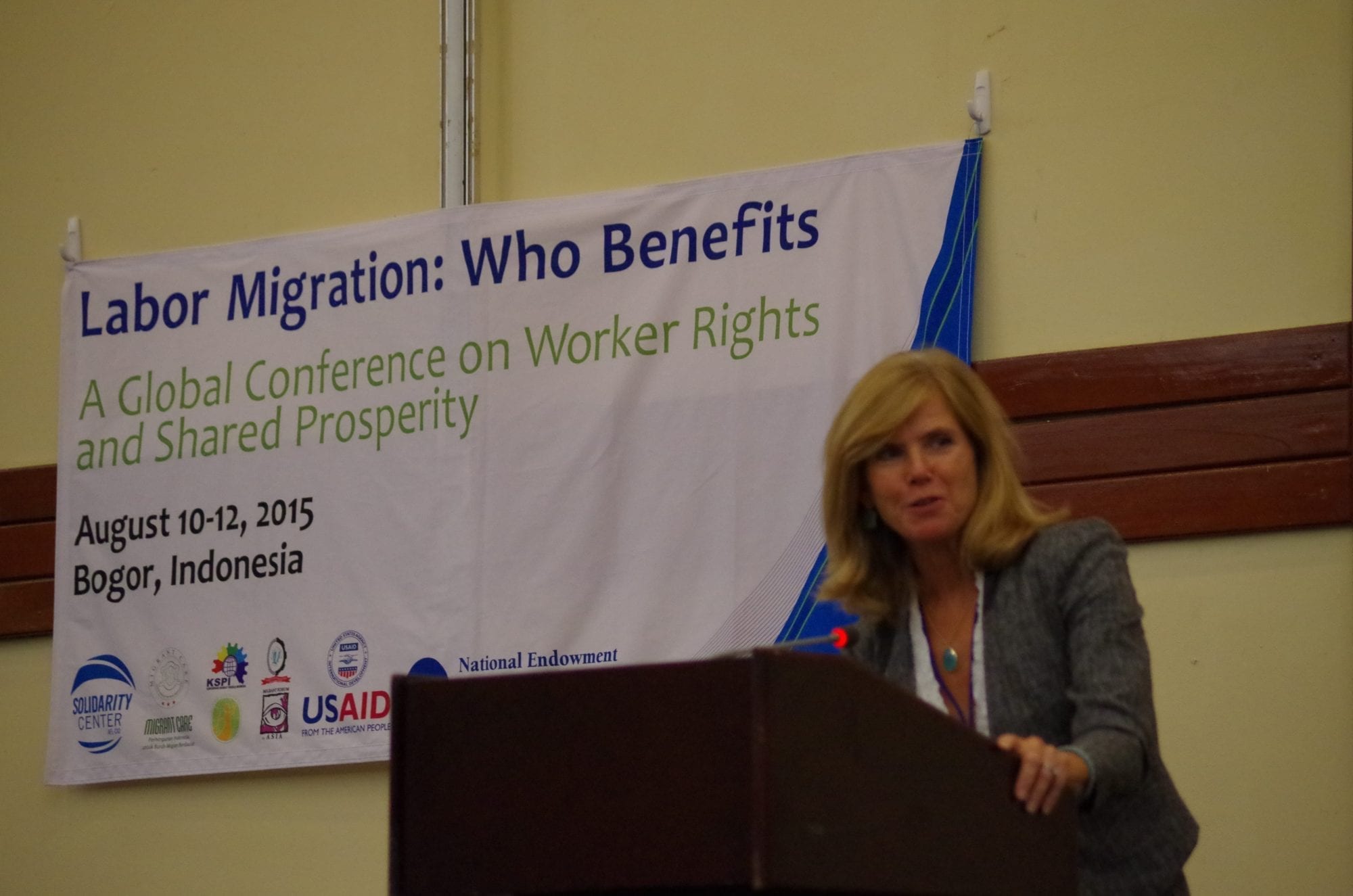Highlighting the rampant economic inequality across the globe that is in part driving people to migrate for work far from their homes, Michelle Leighton, chief of the Labor Migration Branch at the International Labor Organization (ILO), provided a detailed look at the ILO’s current and planned response to addressing the many challenges migrant workers face in getting decent work.
“We face the largest crisis of human mobilization since World War II,” Leighton said in her keynote speech this morning at Labor Migration: Who Benefits? A Solidarity Center Conference on Worker Rights & Shared Prosperity.
“News seems to come almost daily about the crisis that drives people to seek an economic life somewhere else,” she said, pointing out that 1.5 billion people are living in places other than their homes.

Participants at the Solidarity Center labor migration conference. Credit: Solidarity Center/Kate Conradt
Among the challenges to ensuring migrant workers have a chance at shared prosperity is the anti-migrant stance of some countries. “Shutting doors won’t solve the problem. It pushes the problem to others to solve.”
Leighton also touched on the key issue of labor recruitment, which she described as one of the most unregulated areas in all migration governance.
“Migrants pay thousands and thousands of dollars to get a job,” but the recruitment process is where migrants “have a much higher chance of being engaged in human trafficking.” Even when governments have regulations on recruitment, it often does not matter because so many illegal recruiters operate with impunity.
The ILO is helping push ratification of the fair migration convention and is also working with the International Trade Union Confederation (ITUC) to collect data on migrant workers because so little information exists. In a survey of 120 countries, preliminary data show that about 75 percent of adult migrants age are migrant workers.
In short, Leighton said, “creating decent work at home” is among the keys at the heart of the strategies for ensuring all workers, including migrant workers, take part in shared prosperity.

Our vision is one of “shared prosperity and fairness” –Jim Boland, president of the International Union of Bricklayers & Allied Craftworkers. Credit: Solidarity Center/Kate Conradt
Leighton was part of a panel moderated by ITUC Equality Department Director Chidi King and was introduced by Jim Boland, president of the International Union of Bricklayers & Allied Craftworkers.
Drawing on his experience as an Irish immigrant to the United States, Boland discussed the plight of migrant workers, but noted that even as migrant workers face poverty, discrimination and violence, “they are organizing in their community to end discrimination and violence and amplify their voices.”
“While many migrant workers are forced into poverty, with a lack of decent work and violence, migrant workers are mobilizing and developing innovative strategies for building worker power. Collective bargaining and a voice through unions is a key to developing the strength migrant workers need to ensure they have decent work, he said.
Boland urged conference participants to “use this opportunity to forge new partnerships and strengthen the connection with our brothers and sisters within the region and…take these strategies back home and push policy makers for a more just system.”
Our vision, Boland said, is one of “shared prosperity and fairness.”
Follow the conference on the website and on Twitter @SolidarityCntr.

